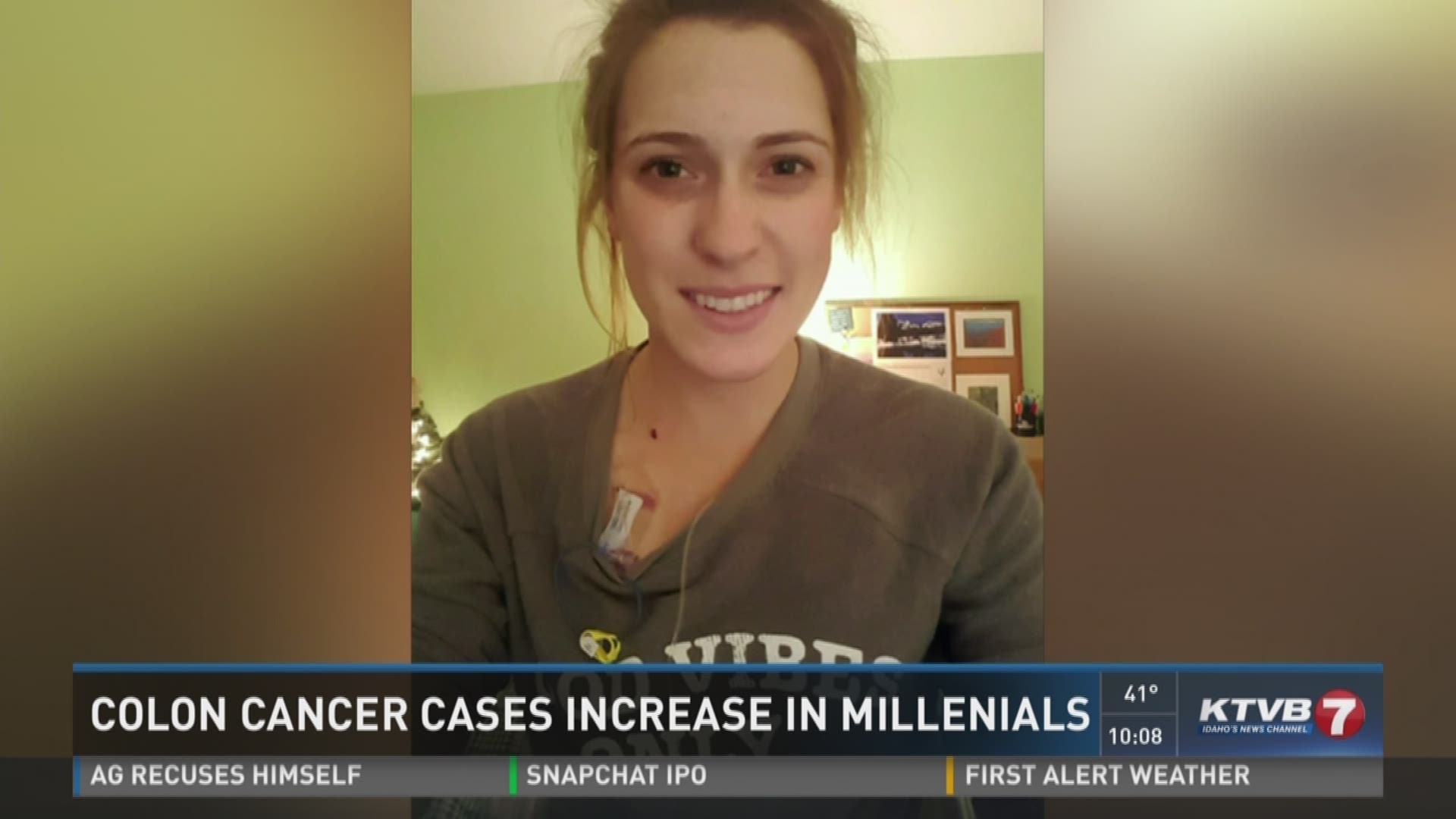It all started over the summer when Lara Tuthill traveled overseas to Nepal and Thailand. She came back sick and never got better.
"I was feeling pretty sick that whole time and tired," said Tuthill. "I explained it away by just different environment."
From July through November, she worked for Americorps, and in October she started having back pains. By Thanksgiving the pain was too much, so she went to the emergency room for a scan.
"He said, 'Lara we need to talk about your results,'" said Tuthill. "And then he told me I had a tumor and it was absolutely shocking. I'm only 25, I'm very active I was a collegiate runner and athlete, I eat healthy, I don't smoke or drink."
The colon cancer diagnosis even stunned the doctors.
"No one can really prepare you for that, it's just a bizarre experience when someone says, 'Oh, you have cancer.'"
Next came radiation treatments, and now chemotherapy.
"It kind of takes the wind out of your sails," said Tuthill. "The average age for colon cancer that I just read is 72, and I'm 25."
A new study found that a person born in 1990 has double the risk of early colon cancer and quadruple the risk of early rectal cancer as someone born in 1950. The cases involving younger adults has risen to 29 percent for rectal cancer and 17 percent for colon cancer, the study showed.
"We do see a lot of patients who have persistent symptoms, and finally they are seen and find out they do have cancer," said Shauna Williams, a colon and rectal surgeon at Saint Alphonsus.
Symptoms like abdominal pain, weight loss and rectal bleeding.
"Trying to find a younger patient who has those non-specific symptoms early on is difficult," said Williams. "It's not something that I could've seen coming and prevented."
Which means, Williams says, they never get tested sometimes until it's too late.
"It's hard to recommend a colonoscopy to a 25-year-old just because they have rectal bleeding," said Williams. "The chances of you finding something is really low and you'd have to scope a lot of patients unnecessarily."
Now the question is should the screening guidelines change?
"I don't think we have enough information yet to know whether we need to do that," said Williams.
There is another - less invasive way - for a young adult to get tested. Williams says it would only require a stool sample.
"It could find if something is going on and if it's a positive test, then you do further testing after that."
While scientists and researchers with the American Cancer Society haven't been able to pinpoint exactly why this dramatic increase is happening, they say some prime suspects are obesity, inactivity, and poor eating habits.
Williams also says if you have a family history of colorectal cancer, you should get screened earlier at around 40 years old and more frequently.

